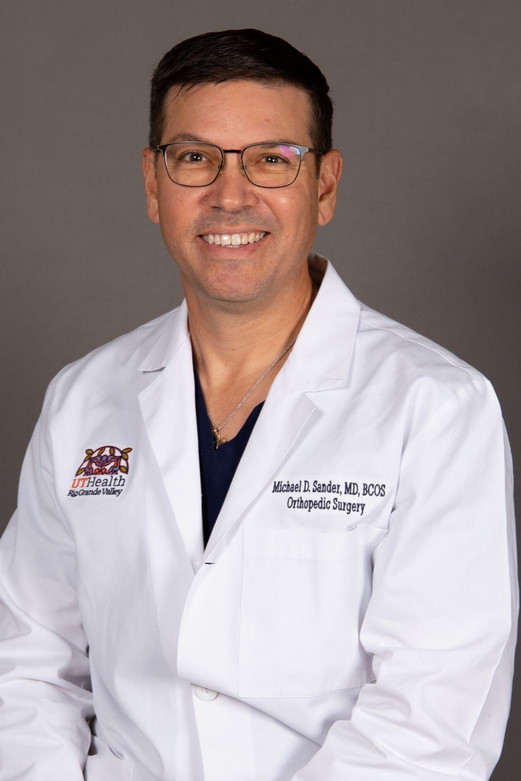Michael Sander, MD, BCOS

Title(s): Chief Physician Executive of UT Health RGV, Chair of Surgical Specialty & MSK, Interim Chair of Surgery, Associate Professor of Orthopedic Surgery
Unit(s):
Surgical Specialty and MSK, Leadership, Surgery, Chair
Contact Info
956-296-2821